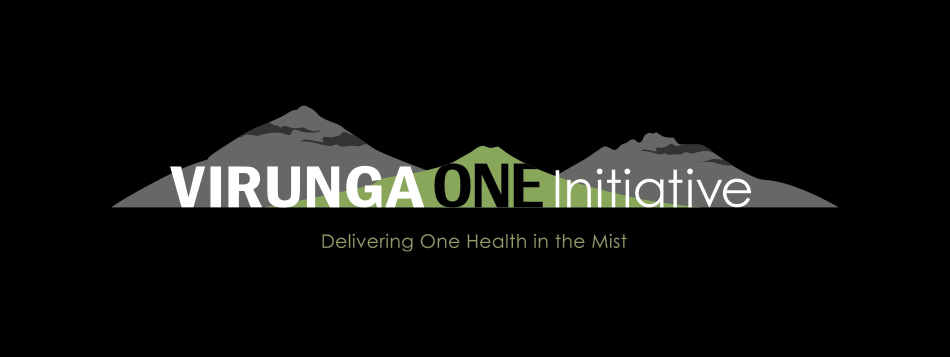VirungaOne

Within the cool misty expanse of the Virunga Massif that borders Uganda and the Democratic Republic of the Congo, Rwanda’s Volcanoes National Park is home to several mountain gorilla groups. Small villages and subsistence farms define the perimeter of the Park in one of the most densely populated regions of Africa. Resources are limited, access to healthcare is lacking and hygiene is practiced at a substandard level. The close proximity of humans and gorillas—two very closely related species—means that infectious diseases are easily shared between humans and the critically endangered mountain gorillas.
The health of wildlife is inextricably linked to the health of the people and the environment that they share—the One Health concept. In the aftermath of the tragic genocide of 1994, a nation-wide study identified that front-line workers desperately needed the opportunity to learn and acquire new skills in order to deliver improved health care to the people. Almost all care in remote village health centers was provided by nurses and one area where expertise was lacking was in primary eye care.

Improving the health and wellbeing of the local community not only limits disease transmission between humans and gorillas, it also provides an opportunity to build trust and goodwill and a willingness to partner in conserving mountain gorillas—an important natural and economic resource. Docs4GreatApes, and their partner the Gorilla Doctors, established the VirungaOne Initiative. We set out to design and deliver learning modules on eye care. With additional training, nurses could detect cases that require referral or even carry out treatment of minor eye problems on site, increasing the number of visits to health centres.
To determine the current understanding of eye-related problems, a Knowledge, Attitudes, and Practices (KAP) survey was designed for the nurses from 14 remote health care clinics that surround Volcanoes National Park. With the clinical case examples loaded onto iPads and with the help of translators, graduate students Elyse Burt and Emily Quinn surveyed 105 nurses. To understand how best to implement the modules in such resource- poor communities, interviews were conducted with each of the head nurses.

 With the information from the KAP survey, a team of education professors, six North American ophthalmologists, and the sole Rwandan ophthalmologist in the region, developed the learning module. Using a hardcopy manual, translated into their native Kinyarwandan, and overhead PowerPoint presentations in a small group setting, ten groups of nurses were trained. Each course was delivered over four days in an intimate classroom setting with didactic lectures, case-based learning and simulated models by veterinarian and MPH graduate student Dr. Emily Denstedt. At the end of the course, a second KAP survey re-assessed their knowledge and comfort in dealing with eye patients. Six nurses returned to learn how to deliver the course material themselves to other colleagues—to “train-the-trainers”.
With the information from the KAP survey, a team of education professors, six North American ophthalmologists, and the sole Rwandan ophthalmologist in the region, developed the learning module. Using a hardcopy manual, translated into their native Kinyarwandan, and overhead PowerPoint presentations in a small group setting, ten groups of nurses were trained. Each course was delivered over four days in an intimate classroom setting with didactic lectures, case-based learning and simulated models by veterinarian and MPH graduate student Dr. Emily Denstedt. At the end of the course, a second KAP survey re-assessed their knowledge and comfort in dealing with eye patients. Six nurses returned to learn how to deliver the course material themselves to other colleagues—to “train-the-trainers”.
The course was very well received. The nurses’ comfort level in assessing eye care patients rose 25% because of the course. The survey scores increased significantly by 46% from an average initial survey score of 22.3% to an average post-course survey score of 68.8%.
Docs4GreatApes is committed to improving the health of great ape populations, the communities that surround them, and the ecosystem we share, through education.


